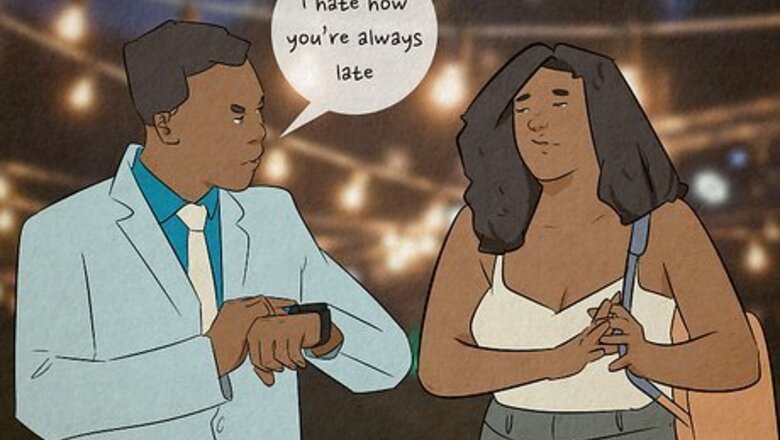
views
- Relationship contempt is when a partner's negative feelings about the other partner are expressed regularly.
- Contempt might come in the form of mockery, criticism, or disrespect. Typically, contemptuous partners will insult their lover's overall character (not a specific behavior).
- To fix contempt in a relationship, focus on appreciation and positivity. Reframe your partner's behaviors in a new light and actively look for their strengths.
Contempt In a Relationship: Overview

Contempt refers to disgust or disrespect expressed in a relationship. When relationships begin, they’re usually filled with love, admiration, and awe. But sometimes, resentment replaces admiration when two partners begin to see each other in a new, unflattering (oftentimes, inaccurate) light, otherwise known as contempt. When one partner receives constant contempt from the other, it can feel very painful. In fact, contempt is one of four main expressions of disrespect called The Four Horseman, which refers to strong signs that a romance is in trouble—we’ll outline them below. Typically, contempt is about what’s wrong with a person, not a specific behavior. So for instance: Contempt: “I hate how you’re always late.” Not contempt: “When you came to the party late, it was stressful for me.” Contempt: “You’re a child, always leaving stuff all over. What’s wrong with you?” Not contempt: “When you leave your clothes around the house, it’s frustrating because I have to clean them up.”

Contempt causes your relationship to become combative rather than loving. Instead of viewing your partner with affection and respect, contempt causes you to view them in a perpetually negative light—for instance, you might label them with terms like inconsiderate or lazy. Because of these contemptuous feelings, it's hard to regard your partner from an empathetic and compassionate perspective.
The Four Horseman in Relationships
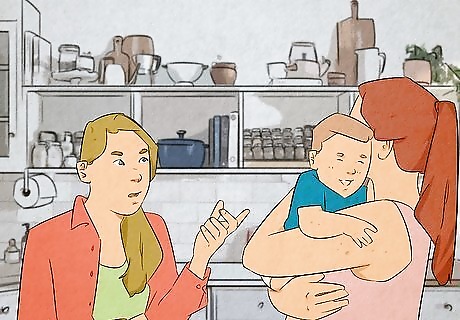
Criticism. It’s normal to feel frustrated with people in our lives, but when someone feels deeper feelings of dissatisfaction with their partner's character, that might be a bigger issue. Criticism is a feedback loop—the more issues a person mulls over and comments on, the more they notice. So eventually, they might feel like all they see in their partner are failures, errors, and disappointment. “Did you just give Henry more dessert? You always do this. You have no backbone.” On the other hand, a healthier partner might’ve said this instead: “Remember, he’s not supposed to have that much dessert. Doctor’s orders! I know, it’s so hard to resist that cute face.”

Contempt. This is the stage when previous feelings of wonder and appreciation for a partner are replaced with disappointment. At this point, the issue is getting more serious, and for both partners to feel fulfilled, the problem will need to be fixed (and good news: contempt is a mindset that's 100% fixable). A lot of the time, contempt will be expressed through mockery, disrespect, and distrust. In short, while a healthy partner sees and expects the best in their lover, a contemptuous partner always expects the worst. Say that one partner left the back gate unlatched. A healthy partner might think: “Whoops, we all make mistakes.” Or even, “Man, she is forgetful sometimes. Oh, well!” On the other hand, a contemptuous partner may feel livid, defeated, or bitter: “This again? I live with a child. I can’t rely on her for anything.”

Defensiveness. The partner who's being attacked will naturally feel compelled to stand up for themself. This is totally understandable, but ultimately, it still escalates the negative dynamic. If the open dissatisfaction was only going in one direction before, now it's a two-way street. As both partners continue to feel hurt, frustrated, and blamed, the criticisms and contempt might only get worse. Say a contemptuous partner blames their lover for being careless: “You’re never thinking about me. You always just do whatever you want.” The other partner might feel compelled to defend themselves by comparing their behavior to their partners, transforming a fight into a heated competition: “Me? You’re the one who constantly criticizes me for everything. Do you even hear yourself?”

Stonewalling. Contempt can feel like a painful, uphill battle. After days, weeks, or months of fights and dissatisfaction, one partner (the “stonewaller”) might give up. They’ll no longer respond to criticism—or potentially, even to healthy discussion attempts by their partner. They’ve become totally unaddressable, which makes communication and reparation impossible at that time. “Hey, I’m sorry about what I said last night. I went too far. Can we talk about it?” The stonewaller, feeling tired, rejected, and hopeless, might not be willing to engage: “No, sorry. I just can’t.”
Why is contempt harmful?
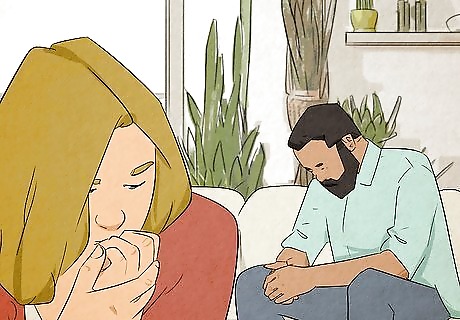
Contempt breaks down a healthy relationship’s foundation over time. Love is all about believing your partner is amazing. That’s the secret—research shows that the happiest relationships have one thing in common: both partners tend to believe the best about the other. Contempt threatens the fabric of healthy relationships because it undermines that positivity. Contemptuous partners are unlikely to offer the other the benefit of the doubt. Love is about respect. It’s almost impossible to give genuine support to someone you don’t respect—that’s why contempt is so dangerous. Unchecked contempt is a feedback loop. So the more you feel it, the more negatives you see in your partner’s behavior. Thoughts inform feelings, and feelings inform actions. Though contempt can point to real issues in one partner’s behavior, it’s typically a skewed view. Over time, contempt might leave someone feeling like their partner is the enemy, not their teammate in life and love.
Signs of Relationship Contempt

Competition. At some point, a contemptuous partner stops feeling like they’re on your side. As a result, both partners might feel competitive with each other, like they’re out to prove that they’re better than the other. This can show up in work, with friends, or even in the relationship itself, and it’s a strong sign of resentment. Healthy partners: support your successes. Your happiness is theirs, too. So when you have a big win, they celebrate it! Contemptuous partners: ignore your successes. They might even minimize it ("Calm down, that's not that impressive..."). This is not loving behavior, and you deserve better.

Correction, not understanding. When two partners sit down to discuss serious issues, there should be listening, compromise, and understanding. But when contempt is in the picture, one or both partners might see conversation as a battlefield. Their goal might actually be to tell the other that they’re wrong or to look out for flaws in their partner's "argument." Healthy partners: understand that acceptance and understanding are the only way forward. If both partners aren't on same page, they'll approach discussions with curiosity and an open mind (not with guns blazing). Contemptuous partners: focus on "winning" conversations. When you calmly explain your feelings, they might try to distract you or pick your words apart: “You’re so sensitive. The real issue is that you can’t take a joke.” This is disrespectful behavior.

Physical dismissing. A lot of times, contemptuous relationships are recognizable through non-verbal cues. When one partner is opening up, the other might physically turn away or make an expression that shows their annoyance. This is a form of passive aggression that signals the fact that at least one partner is prioritizing their ego over healthy communication. Healthy partners: use respectful facial expressions and body language, even when their partner says something upsetting or frustrating (because they care about finding compromise, not making their partner feel silly). Contemptuous partners: roll their eyes, cross their arms, sigh loudly, physically turn away, or make an annoyed expression while you’re trying to talk.
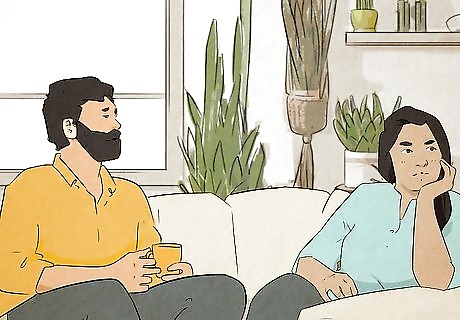
Poor communication. As we mentioned, a lot of contemptuous partners see conversation as a competition, not a chance to connect. But poor communication goes even further: not listening and interrupting are also strong signs of contempt. The underlying reason here being that one or both partners are incapable of building a bridge to the other. The longer two people go without finding a way to genuinely communicate, the more time contempt has to fester and grow. Healthy partners: make open dialogue a hallmark in relationships. They’ll understand that communication offers a solution to most interpersonal problems, and avoiding authentic conversation only makes things worse over time. Contemptuous partners: may not be willing to engage, even when there’s a clear issue. They'd rather sweep things under the rug and avoid uncomfortable conversation.
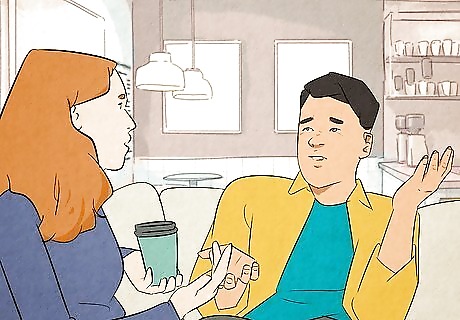
Venting to others. Everyone needs to blow off steam every once in a while, and as we’ve mentioned, feeling annoyed with a partner is normal. But if one or both partners constantly need to complain to friends and family, that’s a sign that contempt is growing. This means that frustration is building to a point where they can’t deal with it internally, and that’s not a great sign. Healthy partners: vent about their partner’s behaviors. So that might be: “Chris forgot to find a dogsitter, so now I'm searching for one. I’m a little annoyed.” Contemptuous partners: vent about their partner’s overall poor character instead: “Chris is so useless. He forgot to set up the dogsitter, which is ridiculous.”

Disrespect. This is a big one, and it comes in many forms. When two partners are in a healthy relationship, they’ll be respectful and caring. That’s what you deserve from the person you love! But when contempt creeps in, you might find that one or both partners’ behaviors stop reflecting respect. Instead, they might show inconsideration, mocking, name-calling, or disconnection. Healthy partners: remember that they’re equals in their relationship. That golden rule still applies in mature romances—in general, they know that they should treat their partner like they’d want to be treated. Contemptuous partners: won't think about how their behaviors effect their partner. For example, they might make constant jokes at your expense and not seem to get it when you explain that it hurts your feelings.
How to Fix Relationship Contempt

Reflect on your behavior. At the end of the day, if you’re trying to fix your relationship, there’s good news: you have complete control over your role in it. Think critically about how you two interact—are you falling into contemptuous patterns? If your partner is more contemptuous, are there ways to communicate that in a gentle way? Prepare to be thoughtful about your thoughts, feelings, and actions going forward. It can be uncomfortable, but trust us, it's worth it! Contempt is so tough and oftentimes, it’s rooted in real disappointment with a partner. If you’re struggling with these feelings, know that you’re not alone. And attempting to reframe contempt doesn’t mean becoming a doormat—if your partner needs to treat you with more respect, trust that that will be a part of the equation too. But the first step, still, is to look inward. If you’re willing to watch your behaviors closely, self-correcting as you go, you’ll be starting on the path to a healthier romance.

Make small changes. Right now, you’re caught in a bad pattern. That’s how resentment grows—we have the same little negative exchanges over and over, which fuels contempt. It might be that one of you nags, the other ignores, then both partners walk away feeling frustrated and misunderstood. So, why not flip the script? Look for opportunities to react in a new way, then pay attention to how it shifts your dynamic. Say you notice dishes left in the sink. In the past, you might’ve done them (leaving you feeling frustrated) or angrily yelled at your partner (leaving them feeling criticized). Instead, you might: calm down, open with a compliment, then tell them how it makes you feel. “Hey honey. I saw that you took out the garbage. Thanks for doing that! Also, I saw dishes left in the sink. It’s not a huge deal, but dirty dishes make me anxious. I know it may not happen overnight, but I'd love for you to try to avoid doing that in the future." Did this interaction go differently? How did your partner react? If this was more successful, it might be worth trying more often.
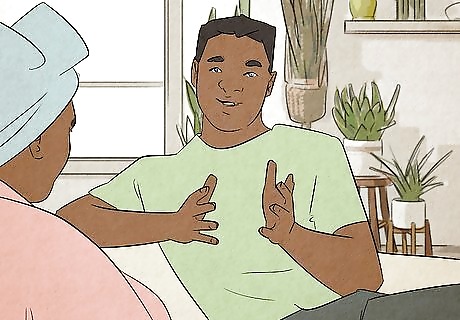
Get to the root of the issue. Anger, frustration, yelling, pettiness…these expressions sometimes distract from the real issues, leading you and your partner to feel attacked and misunderstood. But the truth is, you’re both on the same team, hoping for the same positive outcome (even if that's hard to see sometimes!). When you present a problem, try calmly explaining how it makes you feel deep down, because this is more likely to reach your partner. Instead of yelling something like this: “You’re always lying to me. I can’t trust anything you say or do. You’re so shady. I can’t stand it.” Try this: “When you lie about little things, it sort of makes me feel like you don’t respect me enough to be honest. It’s the kind of thing my mom used to do growing up, and so it hurts me on a deep level.” A loving partner will almost certainly respond to this sentiment and feel motivated to look for solutions.

Focus on keeping your cool. For some people, anger can shake deep contemptuous feelings loose. In the heat of the moment, some of us say things we never would’ve normally, and those comments can eat away at a relationship long term. When you feel yourself getting annoyed, take a beat to relax, remove yourself from the situation, and think carefully about what you really want to say. Maybe your partner wants to play video games but they promised they'd take you to dinner. Before yelling, take a beat, take a breath, and think about how you want to communicate: "Hey babe, can we talk..." Cooling down during active conflicts can be another great way to help improve your dynamic—try diffusing a fight immediately with a joke or a gentle touch.

Show appreciation. In general, the more positivity you can infuse into your relationship the better. A lot of the time, a person's best behavior emerges when others really believe in them (your partner included). If you can express that you’re grateful for all that your partner is, you might find that they're more likely to rise to the occasion. Appreciate your partner for little things, big things, everything. And if you and your partner are working on this together, ask them to do the same. “I’m so lucky to have you. Thanks for getting that stain out of my blouse!” “Just thought I’d leave you a little note to say that dinner last night was amazing. You’re such a great cook!” You two might even set a goal together. For instance, you guys could aim to each share 5 moments of gratitude every day. When you're frustrated, it can feel difficult to be positive. But just remember, this could seriously help your dynamic over time!

Remember the good times. Some psychologists believe that the key to fighting off resentment is simple: keep the easy, early days of your relationship alive in some way. Remember when you two couldn’t keep your hands off of each other? When you felt like your partner walked on water? Who says that has to feel so distant now? Maybe it isn’t that both of you changed that much, maybe life has just gotten in the way of those deeper feelings. So, try to engage with them again to rekindle your old spark: Talk about the old times regularly: “I was just thinking about the first time I saw you. I couldn’t believe how beautiful you were.” Go on sentimental vacations: “Should we plan another trip to Tokyo? I’d love to go back to where we spent our honeymoon.” When you do talk about the past, try to think of it in a positive light: "We've had ups and downs, and I love that. I know we can get through anything..."

Try communicating about your relationship contempt. Choose a moment where it feels like you two are connecting well and try to open a discussion on the issue of contempt. Explain to your partner that you want things to get better, and you’re willing to do the work. Listen carefully to what they have to say and discuss a plan to get back on track together, through teamwork. You might: Talk about seeing a counselor: “I’m so glad that we’ve talked about this. I wonder if a professional might be able to offer us more guidance and support.” Discuss managing conflicts: “What if the next time we bicker, we take a 5-minute break before we continue. That way, we have time to collect our thoughts. Make a plan to break bad habits: “Things get worse when we don’t carve out 1:1 time. What if we planned a date night every week from here on out?” Decide to speak positively to each other: “It seems like criticism is a big part of our issue. What if we both tried complimenting the other 5 times a day?”

Look for the best in your partner. When you first fall in love with someone, finding the positives is easy—you see them everywhere. Over time though, it might take more conscious effort to stay in touch with the things you truly do love about your partner. But if you’re able to do that, a fulfilling, loving, healthy relationship will follow. Try reframing thoughts and feelings so that you’re paying attention to their great qualities and not obsessing over their faults. This can help you find a happy dynamic with your partner! Reframe their behaviors: “My partner forgot to hold the door for me. But that’s okay, I know he’s really stressed about work…” Look for positives: “Wow, I absolutely love my wife. Looking at her now, it’s not hard to remember how I felt staring at her on my wedding day…” Use a gratitude journal: Gratitude journals can help you keep track of positive thoughts. When you think something kind about your partner, write it down. When you get upset in the future, look at the long list of sweet moments you two have shared!


















Comments
0 comment